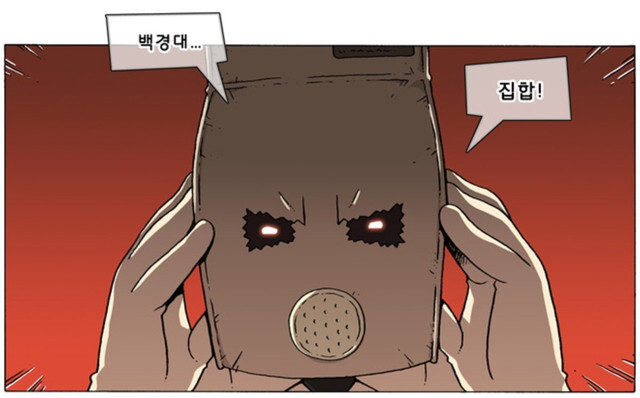Notice
Recent Posts
Recent Comments
Link
| 일 | 월 | 화 | 수 | 목 | 금 | 토 |
|---|---|---|---|---|---|---|
| 1 | 2 | 3 | 4 | 5 | 6 | |
| 7 | 8 | 9 | 10 | 11 | 12 | 13 |
| 14 | 15 | 16 | 17 | 18 | 19 | 20 |
| 21 | 22 | 23 | 24 | 25 | 26 | 27 |
| 28 | 29 | 30 | 31 |
Tags
- 백준1874
- 백준
- stack
- 백준11286
- 백준11003
- 백준10998
- 백준1253
- 백준2750
- Java
- 백준12891
- 백준11720
- 정렬알고리즘
- 백준11399
- 백준2018
- 백준1427
- 백준1517
- 버블소트
- 백준_11659
- 백준11724
- 백준1377
- 백준1940
- 백준13023
- 자바
- 백준2751
- 백준1546
- 백준17298
- 백준1260
- 구간합
- 백준2023
- 백준_구간합구하기
Archives
- Today
- Total
HOONDOC
[백준]1546 평균 - Java/자바 본문
1546번: 평균
풀이
- 메모리 14644KB, 시간 156ms
- 수식을 일반화하지 않고 주어진대로 구현했다면 시간초과가 났을 것 같다.
- 공식이 주어진 상황에서는 일반화가 가능한지, 수식 단축이 가능한지 살펴볼 것.
- 출력 형식이 실수형이므로 float내지는 double을 쓴다.이 문제는 평균 값이므로 float만 써도 충분할듯
- 범위 문제로 틀릴까봐 그냥 double만 썼는데
import java.util.Scanner;
/*
* TAG: 수학, 수식
* A B C (A가 최고점) -> A/A*100, B/A*100, C/A*100
* 수식이 (모든 값의 합/최고점)*100으로 수렴
*/
public class Main {
public static void main(String[] args) {
Scanner sc = new Scanner(System.in);
int N = sc.nextInt();
int bestScr = 0; // 최고점
double sum = 0; // 모든 값의 합
for(int i = 0; i<N; i++) {
int currentScr = sc.nextInt();
if(bestScr < currentScr) bestScr = currentScr;
sum += currentScr;
}
System.out.println(sum/bestScr*100/N);
sc.close();
}
}
코드 리뷰
- 메모리와 시간이 모두 내 풀이보다 두 배 가까이 크다.
- 수식의 일반화가 이루어지지 않아서 연산량이 증가한 것으로 보인다.
- float을 사용한 건 좋았다고 생각한다.
💡 풀이자 : minkang313, 메모리 : 20164KB, 시간 280ms
import java.util.Scanner;
public class Main{
public static void main(String[] args){
Scanner scan = new Scanner(System.in);
int count = scan.nextInt();
float[] scoreArr = new float[count];
int maxScore = 0;
float sum = 0;
for(int i=0; i<count; i++){
int score = scan.nextInt();
scoreArr[i] = score;
if(score > maxScore){
maxScore = score;
}
}
for(int j=0; j<count; j++){
scoreArr[j] = scoreArr[j] / maxScore * 100;
}
for(float score : scoreArr){
sum += score;
}
System.out.println(sum / count);
}
}
- Scanner가 아닌 BufferedReader와 StringTokenizer를 사용해서 시간과 메모리가 단축됐다.
- 기본적인 로직과 코드 구성은 일치한다.
💡 풀이자 : qushe8r 메모리 : 14340KB, 시간 : 128ms
import java.io.*;
import java.util.Arrays;
import java.util.StringTokenizer;
public class Main {
public static void main(String[] args) throws IOException {
BufferedReader br = new BufferedReader(new InputStreamReader(System.in));
BufferedWriter bw = new BufferedWriter(new OutputStreamWriter(System.out));
StringTokenizer st;
st = new StringTokenizer(br.readLine());
int num = Integer.parseInt(st.nextToken());
st = new StringTokenizer(br.readLine());
int[] arr = new int[num];
for (int i = 0; i < num; i++) {
arr[i] = Integer.parseInt(st.nextToken());
}
long max = 0;
double sum = 0;
for (int i : arr) {
sum += i;
if (i > max) max = i;
}
System.out.println(sum * 100 / max / num);
}
}
- 메모리 사용과 시간이 가장 크게 소요된 풀이 코드였다.
- 수식을 일반화하지 않아 연산량이 증가한 것과, Arrays.sort() 사용이 원인으로 보인다.최댓값만 필요하므로 모든 값을 정렬할 필요는 없다. if문을 사용하는게 더 효율적인 케이스다.
- 정렬 함수를 사용한 이유로 최댓값을 찾으려 한 것 같은데,
💡 풀이자 : noble9915 메모리 : 25136KB, 시간 : 392ms
import java.util.Scanner;
import java.util.Arrays;
public class Main{
public static void main(String args[]){
Scanner scan = new Scanner(System.in);
double arr[] = new double[scan.nextInt()];
for(int i =0; i <arr.length; i++){
arr[i] = scan.nextDouble();
}
scan.close();
double sum =0;
Arrays.sort(arr);
for(int i =0; i <arr.length; i++){
sum += ((arr[i]/arr[arr.length-1]) * 100);
}
System.out.print(sum/arr.length);
}
}
Conclusion
- 수식을 세우고 구현하는게 문제일 경우 수식을 줄일 수 있는지 체크하기
- 값의 범위가 어디까지인지 생각해보고 그에 맞는 자료형을 사용하기
'문제 풀이 > BAEKJOON' 카테고리의 다른 글
| [백준]1253 좋다 - 자바/Java (0) | 2022.12.29 |
|---|---|
| [백준]1940 주몽 - 자바/Java (0) | 2022.12.29 |
| [백준]2018 수들의 합5 - 자바/Java (0) | 2022.12.28 |
| [백준]11720 숫자의 합 - Java/자바 (0) | 2022.12.28 |
| [백준]11659 구간 합 구하기 - Java/자바 (0) | 2022.12.27 |




